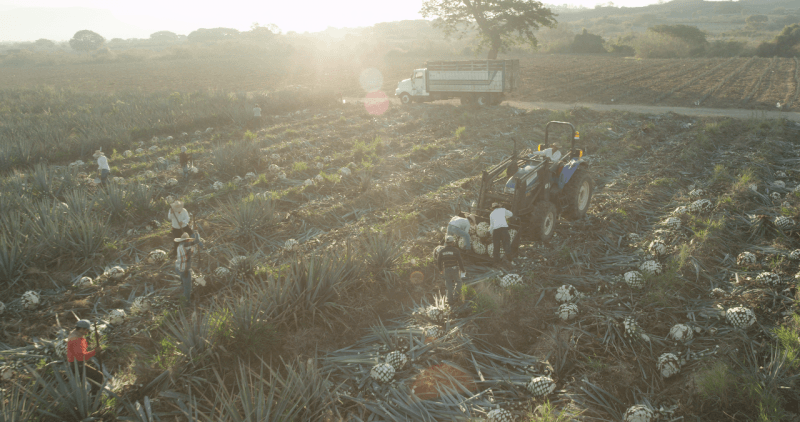Source: triplepundit.com
Published: July 26, 2016

Image credit: Ford
Why would an American car company and a Mexican tequila company ever team up? In the case of Ford Motor Co. and Jose Cuervo: to make bioplastics from an agave byproduct.
Ford researchers are testing the durability and heat resistance of the agave material for use in vehicle interior and exterior components like wiring harnesses, storage bins and HVAC units. The initial assessments “suggest the material holds great promise due to its durability and aesthetic qualities,” the automaker said a press release.
If the bioplastic is successfully developed, it could reduce the weight of car parts which would improve fuel economy. The bioplastic would also prevent the use of petrochemicals and decrease the overall environmental impact of vehicles. A typical car contains about 400 pounds of plastic.
“At Ford, we aim to reduce our impact on the environment,” said Debbie Mielewski, Ford senior technical leader, sustainability research department, in a statement. “As a leader in the sustainability space, we are developing new technologies to efficiently employ discarded materials and fibers, while potentially reducing the use of petrochemicals and light-weighting our vehicles for desired fuel economy.”
Mielewski began researching alternative materials at Ford in 2000. Her team has since developed car parts made from materials like wheat straw and coconut fiber. So the agave concepts will join an impressive list.
“Jose Cuervo is proud to be working with Ford to further develop our agave sustainability plan,” added Sonia Espinola, director of heritage for Cuervo Foundation and master tequilera, in a statement. “This collaboration brings two great companies together to develop innovative, earth-conscious materials.”
Agricultural biomass waste and the use of conventional plastic are two big environmental problems
Agricultural biomass waste is a huge problem. Five billion metric tons of biomass is generated every year from agriculture, according to the U.N. Environment Program (UNEP), which is equivalent to about 1.2 billion tons of oil.
About 1 million tons of agave tequilana plants are processed every year by the Mexican tequila industry, and they create significant biomass waste. It takes a minimum of seven years for agave plants to grow. Once they are harvested, the heart of the plant is roasted, then ground and its juices are extracted for distillation. Jose Cuervo is already finding uses for the agave fiber byproduct. It is used as compost for its farms, and local artisans use it to make crafts and paper.
On the flip side, the automotive industry is a heavy user heavy user of plastic. A car has over 20,000 different parts, on average, which are often made from conventional plastic. Considering about 8 percent of global petroleum use goes toward plastic, identifying opportunities to use bioplastic is needed. The use of bioplastic has the potential to reduce the use of petroleum and cut down on agricultural biomass waste, particularly if the Ford and Jose Cuervo partnership is successful.
Ford’s 16-year journey with sustainable materials
The partnership with Jose Cuervo is not Ford’s first foray into researching the use of sustainable materials. The iconic car company began research into such materials in 2000. Ford now uses several types of bio-based materials in its vehicles and is testing more, including algae, tomato peel and carbon dioxide.
Ford’s F-150 serves as a good example of its use of more sustainable materials. For the 2015 F-150, Ford partnered with aluminum suppliers Novelis and Alcoa to recycle aluminum scraps from its manufacturing process for use in the pickup truck. Most of the scraps come from stamping windows into body panels. They make up as much as 40 percent of the original metal used. Recycled seat fabric fibers are also used in the F-150. Waste material from seat fabric production is turned into new yarns that are woven into seat fabrics. The result is seat fabric fibers made from 100 percent recycled material, including plastic water bottles. About 30 20-ounce plastic water bottles go into the seat fabric of every F-150 XLT.
